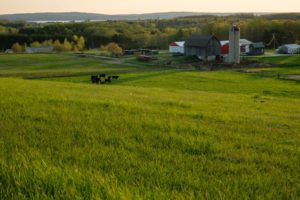USDA’s Rural Development offers multiple grant funding opportunities. The Value Added Producer Grant Program helps agricultural producers enter into value-added activities related to the processing and/or marketing of bio-based, value-added products. Priority may be given to a beginning farmer or rancher, a socially-disadvantaged farmer or rancher, a small or medium-sized farm or ranch structured as a family farm, a farmer or rancher cooperative.
The Rural Energy for America Program provides guaranteed loan financing and grant funding to agricultural producers and rural small businesses for renewable energy systems or to make energy efficiency improvements. Agricultural producers may also apply for new energy efficient equipment and new system loans for agricultural production and processing.
Each fiscal year, Rural Development grant applications are requested through an announcement posted on Grants.gov.







